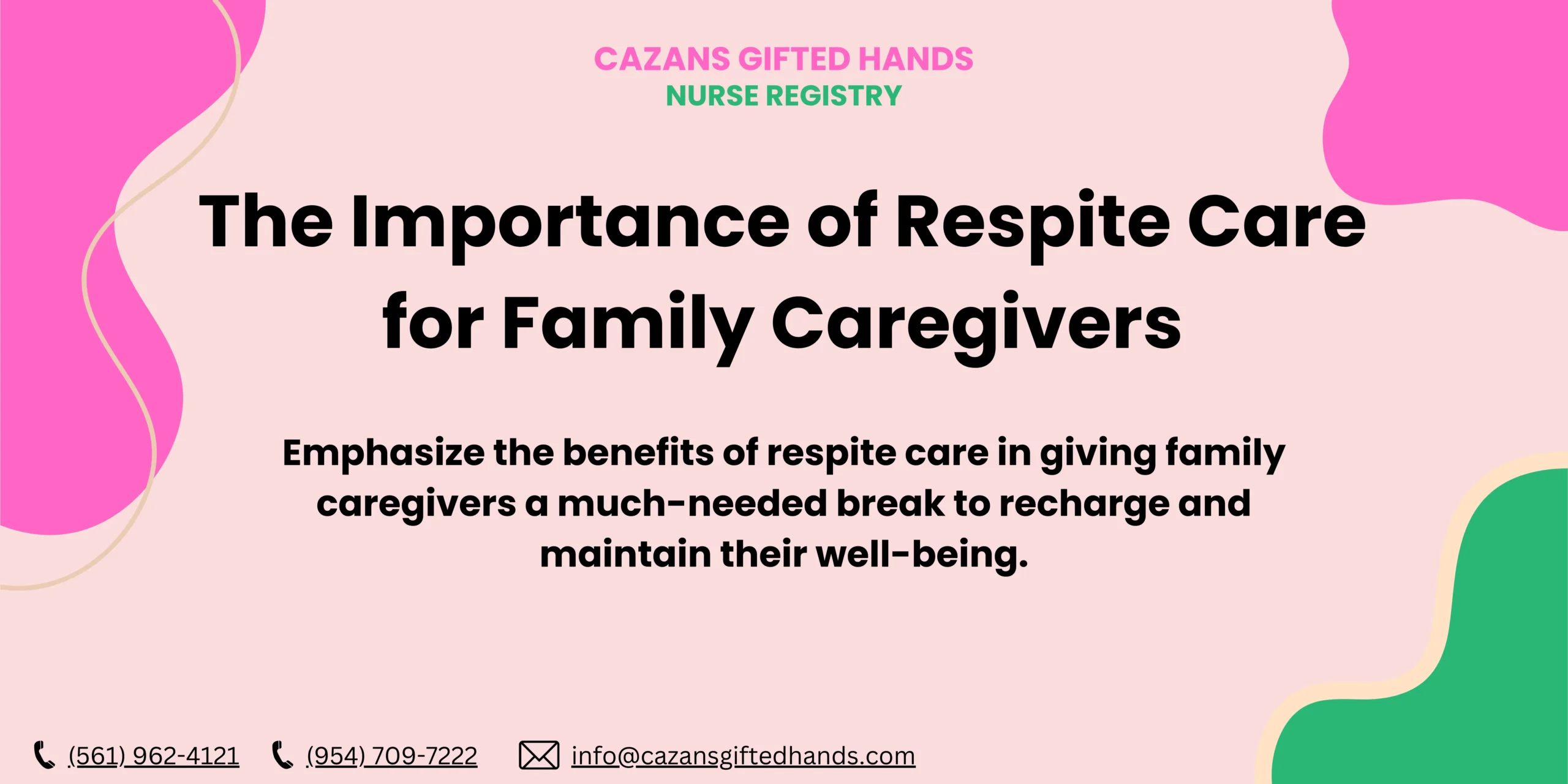Caring for a loved one can be rewarding, but it also comes with significant physical, emotional, and mental challenges. Respite care offers family caregivers the opportunity to take a much-needed break, ensuring they can continue to provide the best care possible. This blog explores the importance of respite care for family caregivers and its many benefits.
Understanding Respite Care
What is Respite Care?
Respite care provides temporary relief for family caregivers by allowing them to take a break from their caregiving responsibilities. This care can be arranged for a few hours, a day, or even longer, depending on the needs of the caregiver and their loved one.
Types of Respite Care
Respite care can be provided in various settings, including in-home care, adult day care centers, and residential facilities. Each option offers different levels of support and services to meet the unique needs of families.
Benefits of Respite Care
Physical and Mental Health
Caregiving can take a toll on the physical and mental health of family caregivers. Respite care allows caregivers to rest, recharge, and attend to their own health needs. This break helps prevent burnout and reduces the risk of physical and mental health issues.
Improved Care Quality
When caregivers are well-rested and less stressed, they can provide better care for their loved ones. Respite care ensures that caregivers return to their duties refreshed and with renewed energy, leading to improved care quality.
Time for Personal Activities
Respite care provides caregivers with the time to engage in personal activities and interests. Whether it’s spending time with friends, pursuing hobbies, or simply relaxing, this time away from caregiving responsibilities is essential for maintaining a balanced life.
Supporting Emotional Well-Being
Stress Relief
The constant demands of caregiving can be overwhelming and stressful. Respite care offers a break from these pressures, allowing caregivers to de-stress and gain a fresh perspective. This stress relief is crucial for maintaining emotional well-being.
Emotional Support
Respite care providers often offer emotional support and counseling for caregivers. This support helps caregivers cope with the emotional challenges of caregiving and provides them with strategies to manage stress and anxiety effectively.
Strengthening Family Relationships
Quality Time with Loved Ones
Respite care enables family caregivers to spend quality time with other family members and friends. This time helps strengthen relationships and provides a support network for the caregiver, enhancing their overall well-being.
Preventing Caregiver Burnout
By taking regular breaks, caregivers can avoid burnout and maintain a positive attitude towards their caregiving responsibilities. Preventing burnout ensures that caregivers remain compassionate and effective in their roles.
Planning for Respite Care
Scheduling Regular Breaks
It’s important for family caregivers to schedule regular breaks to benefit from respite care. Planning ahead ensures that caregivers can take time off without disrupting the care routine of their loved ones.
Choosing the Right Respite Care Provider
Selecting a reliable and experienced respite care provider is crucial. Caregivers should research and choose a provider that meets their loved one’s needs and offers high-quality care.
Conclusion
Respite care plays a vital role in supporting family caregivers by providing them with the necessary breaks to maintain their physical, emotional, and mental health. It enhances the quality of care provided and helps prevent caregiver burnout.
For more information about our respite care services, visit our respite care services page.
To learn more about our location, check out our Google Business Profile.
